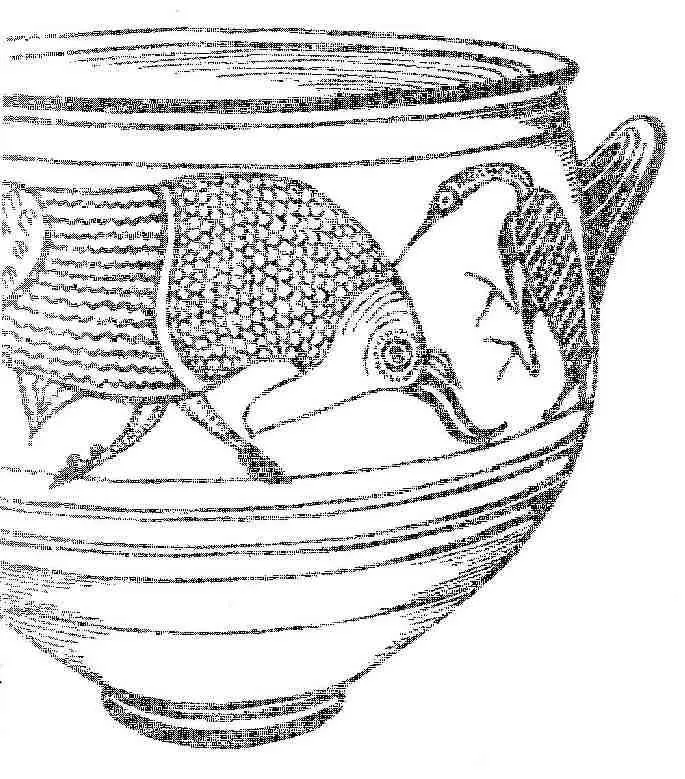Harry Turtledove - The Gryphon's Skull
Здесь есть возможность читать онлайн «Harry Turtledove - The Gryphon's Skull» весь текст электронной книги совершенно бесплатно (целиком полную версию без сокращений). В некоторых случаях можно слушать аудио, скачать через торрент в формате fb2 и присутствует краткое содержание. Жанр: Книги. Описание произведения, (предисловие) а так же отзывы посетителей доступны на портале библиотеки ЛибКат.
- Название:The Gryphon's Skull
- Автор:
- Жанр:
- Год:неизвестен
- ISBN:нет данных
- Рейтинг книги:4 / 5. Голосов: 1
-
Избранное:Добавить в избранное
- Отзывы:
-
Ваша оценка:
- 80
- 1
- 2
- 3
- 4
- 5
The Gryphon's Skull: краткое содержание, описание и аннотация
Предлагаем к чтению аннотацию, описание, краткое содержание или предисловие (зависит от того, что написал сам автор книги «The Gryphon's Skull»). Если вы не нашли необходимую информацию о книге — напишите в комментариях, мы постараемся отыскать её.
The Gryphon's Skull — читать онлайн бесплатно полную книгу (весь текст) целиком
Ниже представлен текст книги, разбитый по страницам. Система сохранения места последней прочитанной страницы, позволяет с удобством читать онлайн бесплатно книгу «The Gryphon's Skull», без необходимости каждый раз заново искать на чём Вы остановились. Поставьте закладку, и сможете в любой момент перейти на страницу, на которой закончили чтение.
Интервал:
Закладка:
H. N. Turteltaub

H. N.Turteltaub is a pen name of Harry Turtledove
This is a work of fiction. All the characters and events portrayed in this novel are either fictitious or are used fictitiously.
Copyright 2002 by H. N.Turteltaub
Map by Mark Stein Studios
The ‘Hellenic Traders’ Series:
Over the Wine Dark Sea
The Gryphon’s Skull
The Sacred Land
Owls to Athens
The Gryphon’s Skull is dedicated to Jack Horner, whose Dinosaur Lives gave me the idea for it. I owe him special thanks for the pleasure of his conversation, and for his patience with my questions about Protoceratops skulls. Any errors, of course, are purely my own .
A Note on Weights, Measures, and MoneyI have, as best I could, used in this novel the weights, measures, and coinages my characters would have used and encountered in their journey. Here are some approximate equivalents (precise values would have varied from city to city, further complicating things):
1 digit = 3/4 inch
4 digits = 1 palm
6 palms = 1 cubit
1 cubit = 1 1/2 feet
1 plethron = 100 feet
1 stadion = 600 feet
12 khalkoi = 1 obolos
6 oboloi = 1 drakhma
100 drakhmai = 1 mina
(about 1 pound of silver)
60 minai = 1 talent
As noted, these are all approximate. As a measure of how widely they could vary, the talent in Athens was about 57 pounds, while that of Aigina, less than thirty miles away, was about 83 pounds.
Map
Spring. Never in all his twenty-six years had Menedemos been so glad to see the sailing season come round again. Not that winter in Rhodes was harsh. Menedemos had never seen snow fall here, nor had his father. Even so ...
His fingers caressed the steering-oar tillers of the merchant galley Aphrodite as they might have stroked a lover's skin. His cousin Sostratos stood on the akatos' poop deck with him. Sostratos was a few months older and most of a head taller, but Menedemos captained the ship. His cousin served as toikharkhos, keeping track of the Aphrodite and of what they would bring in and spend on their trading run. Sostratos had a splendid head for numbers. People, now, people gave him a good deal more trouble.
From the quay at which the Aphrodite was tied up, Menedemos' father called, “Be careful. By the gods, be extra careful.”
“I will, Father,” Menedemos said dutifully. One of the reasons he was so glad to escape Rhodes was that that meant escaping Philo-demos. Living in the same house with him through the winter had been harder this year than in any other Menedemos could remember. His father had long been convinced he couldn't do anything right.
As if to prove as much, Philodemos called, “Listen to your cousin. Sostratos has the beginnings of good sense.”
Menedemos clipped his head, as Hellenes did to show assent. He shot Sostratos a hooded glance. Sostratos had the decency to look embarrassed at such praise from the older generation.
Sostratos' father, Lysistratos, stood alongside Philodemos. He was a good deal more easygoing than his older brother. But he too said, “You're going to have to watch yourselves every single place you go.”
“We will.” Even Sostratos let a little exasperation show, and he got on with his father far better than Menedemos did with his.
But Lysistratos persisted: “Not just pirates these days, you know. Since Ptolemaios and Antigonos started fighting again last year, there'll be more war galleys on the sea than a dog has fleas. Some of those whoresons are just pirates in bigger, faster, stronger ships.”
“Yes, Uncle Lysistratos,” Menedemos said patiently. “But if we don't go out and trade, the family goes hungry.”
“Well, that's true,” Lysistratos admitted.
“Watch out for the silk merchants on Kos,” Philodemos warned. “They'll gouge you if you give them half a chance—-even a quarter of a chance. They think they've got the world by the short hairs because you can't buy silk anywhere else.”
They have a point, too, Menedemos thought. Aloud, he said, “We'll do our best. We did all right with them last year, remember. And we've got crimson dye aboard. They always pay well for that.”
His father gave more advice. In a low voice, Sostratos said, “If we keep listening to them, we'll never sail.”
“Isn't that the truth?” Menedemos whispered back. He raised his voice to call out to the crew: “Rowers to the benches! Diokles, come up to the stern, if you please.”
“Right you are, skipper,” Diokles answered. The keleustes was in his early forties, his skin tanned and leathery from endless summers at sea. He mounted from the undecked waist of the akatos to the poop. His bare feet were sure and quiet as he came up the steps to the raised platform at the stern. Seamen didn't wear shoes aboard ship—and few of them bothered with shoes ashore, either.
All forty of the akatos' oars were manned fast enough to keep Menedemos from complaining. More than half of the rowers had gone west to Great Hellas and the towns of the Italian barbarians the year before. Almost all of them had pulled an oar in a Rhodian warship at one time or another. They weren't a raw crew, and wouldn't need much beating in to work well together—so Menedemos hoped, at any rate.
He glanced over to the quay to make sure no lines still secured the Aphrodite . Sure enough, they'd all been taken aboard. He knew that, but was glad he'd checked all the same. Trying to row away while still tied up? His father would never have let him live it down. Neither would anyone else.
Having satisfied himself, he dipped his head to Diokles.
“Good enough.” As always aboard ship, the oarmaster carried a little mallet with an iron head and a bronze square dangling from a chain. He used them to beat out the stroke. All eyes went to him when he raised the bronze square. He grinned at the rowers as he cocked his right arm, then brought the mallet forward. As metal clanged on metal, he began to call the stroke, too: “Rhyppa pai! Rhyppa pai!”
The oars rose and fell, rose and fell. The Aphrodite glided away from the pier, slowly at first, then faster and faster. Sostratos waved back toward his father. Grudgingly, Menedemos looked back over his shoulder and lifted one hand from the steering oar to wave at Philodemos in turn. A little to his surprise, his father waved back. But is he waving because he's sorry to see me go, or because he's glad?
Rhodes boasted no fewer than five harbors, but only the great harbor and the naval harbor just northwest of it were warded from wind and weather with manmade moles. The great harbor's opening onto the Aegean was only a couple of plethra across—not even a bowshot. Menedemos steered toward the middle of the channel.
“Rhyppa pai!” Diokles called. He smote the bronze square again. “Rhyppa pai!” He set a stately pace. What point to wearing out the rowers at the beginning of the voyage? And what point to embarrassing them by pushing them up to a quick stroke and having them make mistakes under the critical eyes of every wharf rat in Rhodes? After all, the only reason Menedemos put a full complement on the oars was for show. Once out of the harbor, the merchant galley would either sail or amble along with eight or ten rowers on a side unless she had to flee or fight.
Читать дальшеИнтервал:
Закладка:
Похожие книги на «The Gryphon's Skull»
Представляем Вашему вниманию похожие книги на «The Gryphon's Skull» списком для выбора. Мы отобрали схожую по названию и смыслу литературу в надежде предоставить читателям больше вариантов отыскать новые, интересные, ещё непрочитанные произведения.
Обсуждение, отзывы о книге «The Gryphon's Skull» и просто собственные мнения читателей. Оставьте ваши комментарии, напишите, что Вы думаете о произведении, его смысле или главных героях. Укажите что конкретно понравилось, а что нет, и почему Вы так считаете.











